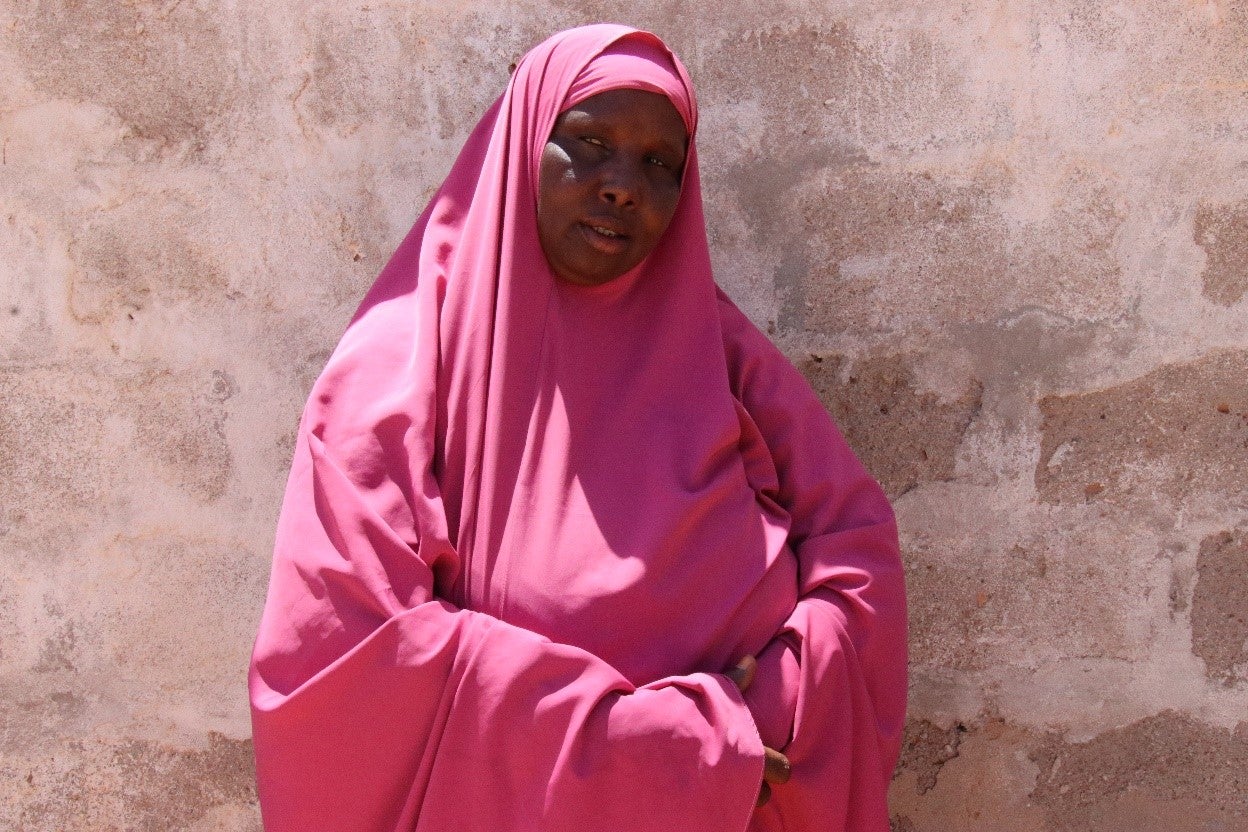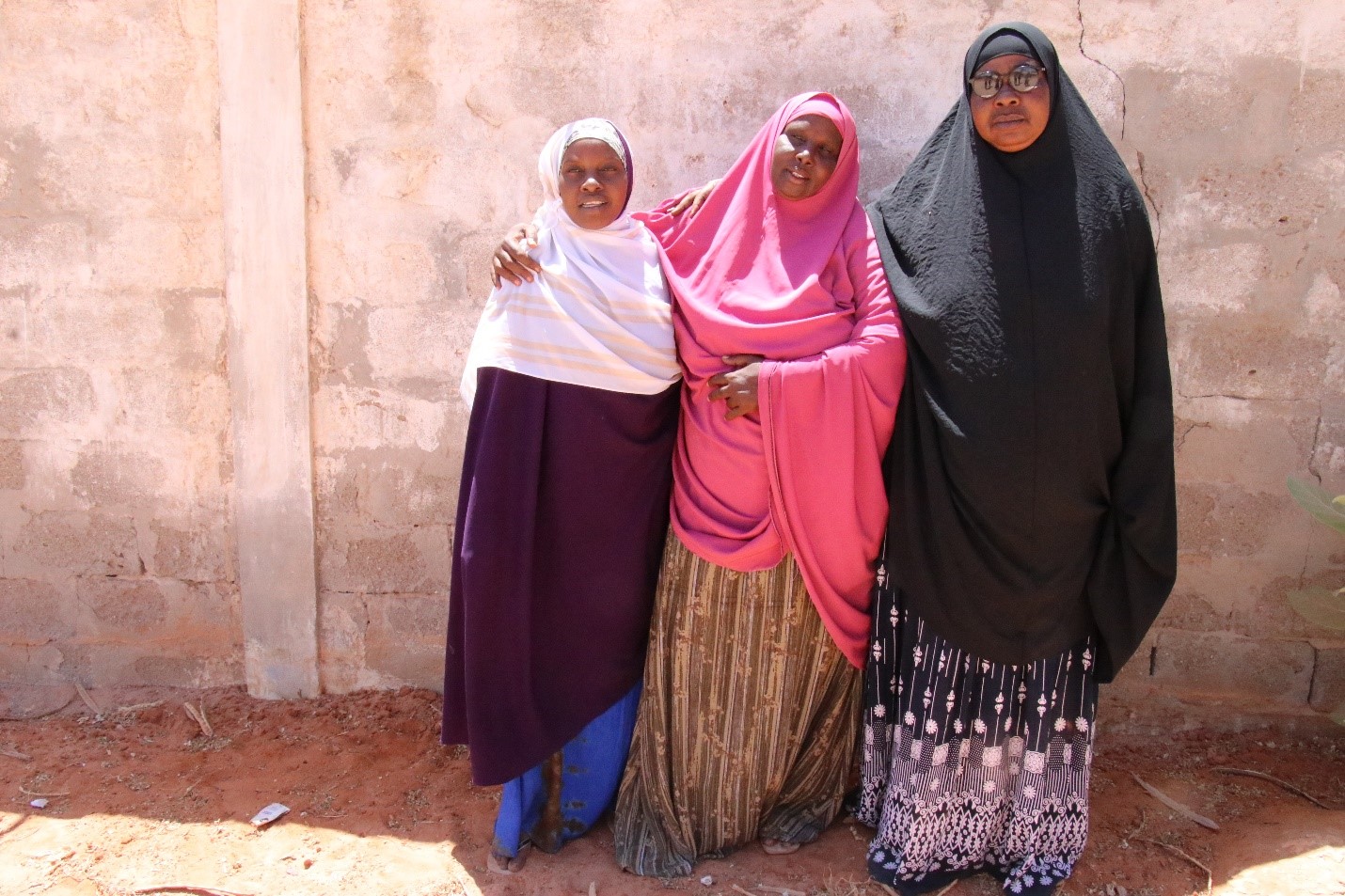From Knowledge to Action: Ending female genital mutilation in Somalia
Date:
At least 200 million girls and women alive today have undergone female genital mutilation (FGM), the partial or total removal of the external female genitalia for non-medical reasons. Somalia is a country where FGM is widespread, with 99 per cent of women having been cut. UN Women Somalia works with its partners to eliminate this practice through awareness raising, community discussions and engaging religious leaders to change social norms cultivating this harmful practice.
Kaafiyo Abdi Farah, 55, was only 7 years old, when she underwent female genital mutilation. She remembers this as the most painful experience she has ever had. Like many women in Somalia, Kaafiyo’s cut was Type III, infibulation, narrowing of the vaginal opening by creating a covering seal. The seal is formed by cutting and repositioning the inner or outer labia, with or without removal of the clitoris.
“They came to our house to cut me, when I was 7 years old only. It was a traumatic experience for me. Not only I was cut in the most horrific way, but also had to endure terrible pain and got burnt as I was supposed to sit on the fire to heal. I had to do it for 21 days,” recalls Kaafiyo.
For Kaafiyo, this experience brought a lot of physical pain, but also great psychological consequences. It took her twenty-one days to recover at home, and her family used heat to make sure she recovered from the cutting and sewing. As she grew up, Kaafiyo experienced pain and difficulties during every menstruation, sleeping with her husband and giving birth.
A mother to seven children, four of whom are girls, although it was a painful experience for her, she went on to cut her daughters as well. She decided not to perform FGM on her granddaughters.

FGM is a widespread practice in Somalia. The recent Somali Demographic and Health Survey (2020) showed a prevalence rate of 99 per cent, including Type I, Type II, Type III and Type IV.[1] While the prohibitions against FGM are contained in federal legal and regulatory frameworks, the Jubaland federal FGM Bill has been drafted and presented to the cabinet but has yet to be endorsed.
During COVID-19, the Gender-based Violence (GBV) Information Management System 2020 data reported an increase of over 61 per cent[2] in GBV. Female genital mutilation, child marriage and limited access to essential services – all put women at heightened risk.
“FGM has also increased during the pandemic, as schools were closed and families used this opportunity while girls were at home, to perform FGM,” says Kaafiyo.
With support from the Government of Japan, UN Women Somalia implemented the project “Women's Leadership, Empowerment, Access and Protection (LEAP) in Somalia” to empower women and girl refugees, internally displaced persons (IDPs) and their communities to mitigate the impact of multiple crises on their livelihoods, their exposure to GBV, and their decision-making capacities. The project is being implemented in Kismayo (Jubaland) and Baidoa (South West).
One of the main focus areas of the programme is to address GBV, to provide quality information and access to GBV services, specifically in the areas of health, law enforcement (police, prosecutors and justice departments) and social services (including psychosocial support, shelter and livelihoods support).
UN Women in Somalia and its partner Ifrah Foundation conducted multi-media advocacy and community outreach activities targeting 1,000 women, men, boys, and girls to address underlying negative social norms and engaged 100 traditional elders and religious leaders in Somalia to lead 20 community dialogues in IDP, refugee, rural and host community settings in Jubaland and South West States.
“FGM is a violation of the human rights of women and girls. It is a means of controlling women’s and girl’s bodies, sexualities and futures. UN Women believes that we can address this issue through working with all people, with particular roles for parents, men and religious leaders to prevent this harmful practice,” says Sadiq Syed, Head of UN Women Somalia.
Community education, awareness raising and engagement to change social norms is the cornerstone of the programme. The multi-media advocacy and community outreach activities reached 25,000 women, men, boys, and girls to address underlying negative social norms and attitudes that condone gender inequality and encouraged the role of men and boys as advocates for gender equality and the empowerment of women and girls.

When Kaafiyo learned about this programme and attended a training session, she learned about the consequences of FGM on girls and women and understood the implications for the first time. She decided to never practice FGM on her granddaughters. Moreover, she joined the project as a Community Discussion Leader on FGM and GBV. Trained by Ifrah Foundation, Kaafiyo is among many Community Discussion Leaders who work with communities, religious leaders and mothers to put an end to this practice in Kismayo, through their personal testimonies.
“Through teachings about the dangers of harmful cultural practices like FGM, I have learned a lot. I feel motivated, and I feel empowered and honoured to serve my community,” says Kaafiyo.
This work is supported by UN Women under the “Women's Leadership, Empowerment, Access and Protection (LEAP) in Somalia” programme to empower women and girl refugees, IDPs and their communities to mitigate the impact of multiple crises on their livelihoods, exposure to GBV, and their decision-making capacities. The project is funded by the Government of Japan and implemented in Kismayo (Jubaland) and Baidoa (South West).
[1] Directorate of National Statistics, Federal Government of Somalia (2020) The Somali Health and Demographic Survey 2020. DNS: Mogadishu.
[2] GBV IMS data August 2020